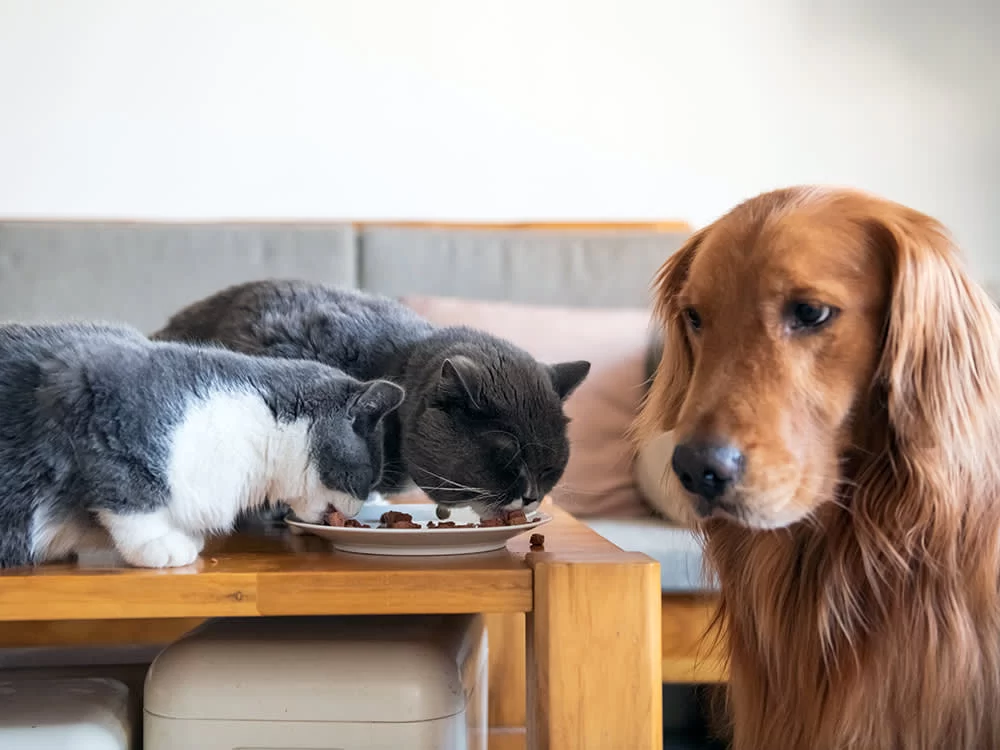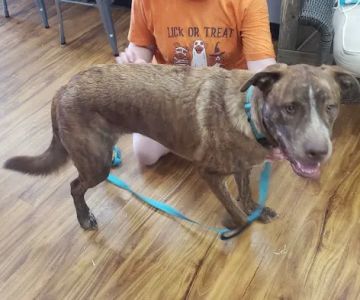Can Cats Eat Dog Food? What You Need to Know About Feeding Your Cat Dog Food
As a cat owner, you may have wondered whether it’s okay for your cat to eat dog food, especially if you run out of cat food or if your dog’s food is more readily available. While it may seem convenient in the moment, it’s important to understand that cats and dogs have very different nutritional needs, and feeding your cat dog food regularly can lead to health issues. In this article, we’ll explore why cats should not eat dog food, the risks involved, and what you should feed your cat to ensure they stay healthy and nourished.
Why Cats Should Not Eat Dog Food
Despite both being animals, cats and dogs have distinct nutritional requirements. The differences in their diet go beyond simple preferences—they are biologically different species, and what works for one may not work for the other. Here are the main reasons why cats should avoid dog food:
1. Cats Are Obligate Carnivores
One of the most significant differences between cats and dogs is that cats are obligate carnivores, meaning their bodies are designed to thrive on a diet that consists mainly of meat. They require a higher amount of animal protein and specific nutrients that are found only in animal-based products. On the other hand, dogs are omnivores, meaning they can tolerate a wider range of foods, including both animal and plant-based sources of nutrition.
Dog food typically has lower protein content compared to cat food and includes a higher amount of plant-based ingredients, which aren’t as beneficial for cats. Cats need essential amino acids like taurine, which is found in animal tissues, but dog food doesn’t contain this crucial nutrient in the necessary amounts. Deficiencies in taurine and other essential nutrients can lead to serious health issues for your cat.
2. Lack of Essential Nutrients
In addition to taurine, there are other nutrients that cats need, such as arachidonic acid (a fatty acid found in animal fat), vitamin A (cats cannot convert beta-carotene to vitamin A as dogs can), and vitamin B12, which are all present in sufficient quantities in cat food but not in dog food. Without these essential nutrients, your cat could develop deficiencies that lead to severe health problems, including vision problems, heart issues, and poor coat condition.
3. Too Much Fat and Calories
Dog food is typically higher in carbohydrates and lower in protein than cat food, which can result in an imbalance for your cat. Furthermore, dog food tends to have a different fat content that is not suitable for your cat’s energy needs. Feeding your cat dog food over time may lead to weight gain, obesity, or even digestive upset because it doesn’t meet their specific energy and protein requirements.
What Happens if Cats Eat Dog Food Temporarily?
If your cat eats dog food once or twice, it’s unlikely to cause immediate harm. However, if they consistently consume dog food as their primary diet, you may start to notice the following issues:
- Weight Gain: Due to the higher carbohydrate content in dog food, your cat might start gaining weight if fed dog food long-term.
- Deficiencies: Over time, nutrient deficiencies can develop, leading to serious health conditions like heart disease (due to taurine deficiency), poor coat quality, and vision problems.
- Digestive Issues: Since dog food is not formulated for cats’ digestive systems, your cat might experience upset stomach, diarrhea, or vomiting.
Can Cats Ever Eat Dog Food?
While it’s important to avoid feeding your cat dog food as a regular diet, there are certain situations where giving them dog food in an emergency might not be disastrous. For example, if you run out of cat food and need a quick solution, feeding your cat dog food for a day or two in small amounts is unlikely to cause harm. However, you should aim to replace it with a proper cat food diet as soon as possible. Always check for any signs of health problems if your cat has eaten dog food for an extended period.
What Should You Feed Your Cat?
To ensure your cat gets all the nutrition they need, stick to high-quality cat food that is specifically formulated for feline dietary requirements. Here are some tips for feeding your cat a balanced diet:
- Choose High-Quality Cat Food: Look for cat food that lists animal protein (like chicken, turkey, or fish) as the first ingredient. This ensures that your cat is getting the right amount of protein and essential nutrients.
- Consider Wet and Dry Food: Both wet and dry cat food can provide balanced nutrition. Wet food helps with hydration and can be especially beneficial for cats who don’t drink enough water. Dry food can help with dental health but should be supplemented with water or wet food to prevent dehydration.
- Check for Nutritional Balance: Ensure that the food meets the AAFCO (Association of American Feed Control Officials) standards for complete and balanced nutrition. This guarantees that the food contains the right amount of vitamins, minerals, and nutrients your cat needs.
Conclusion
While it may be tempting to feed your cat dog food, it’s important to remember that cats have very specific dietary needs that dog food cannot provide. A steady diet of dog food can lead to nutrient deficiencies and health problems for your cat. Always prioritize high-quality cat food to keep your feline friend healthy, happy, and well-nourished. If you’re ever in doubt about what to feed your cat, consult your veterinarian for advice on the best diet for your pet’s needs.












